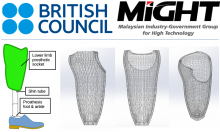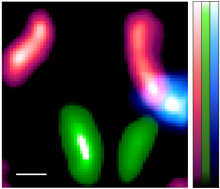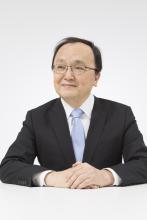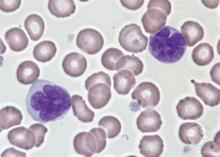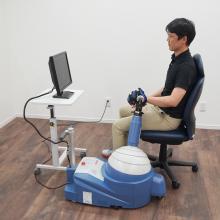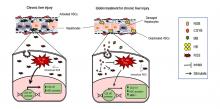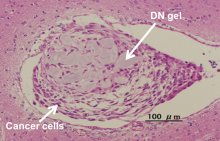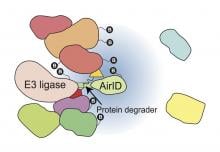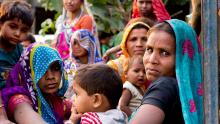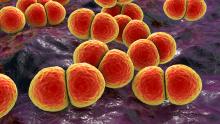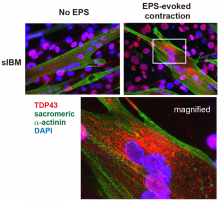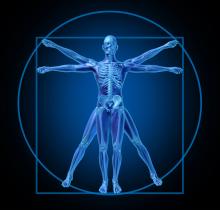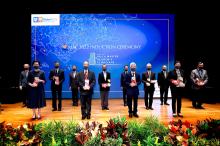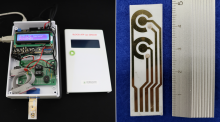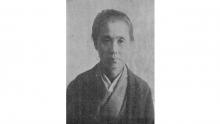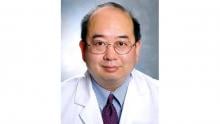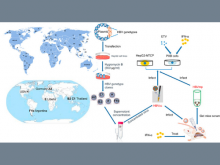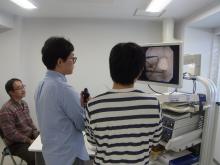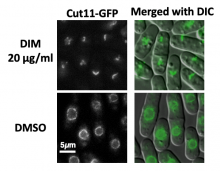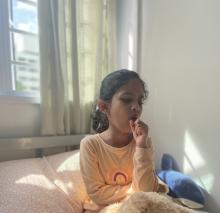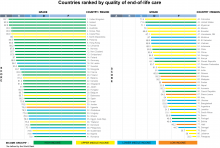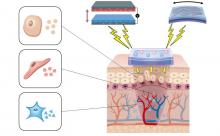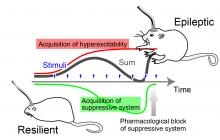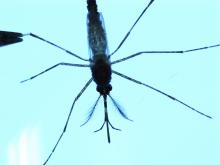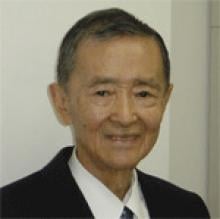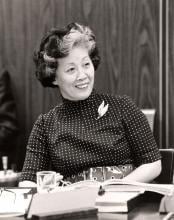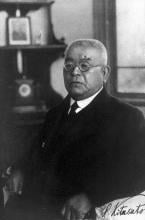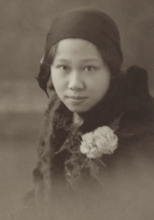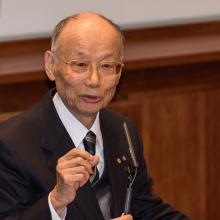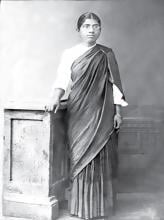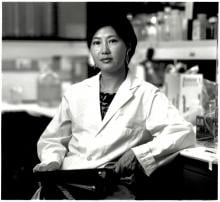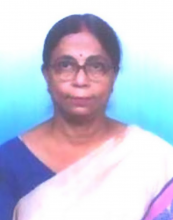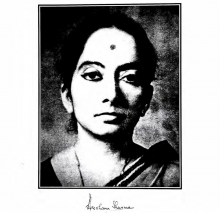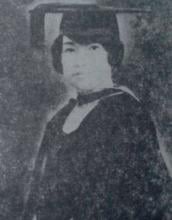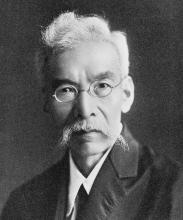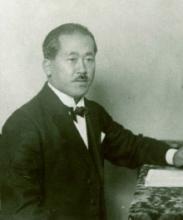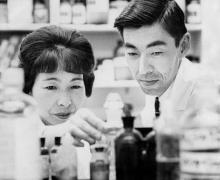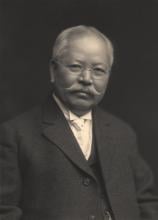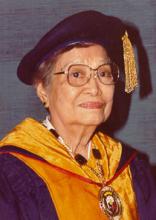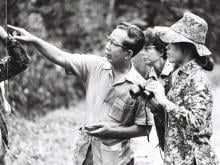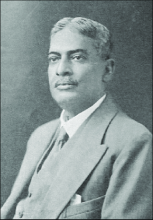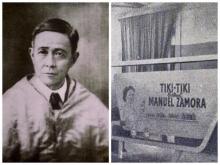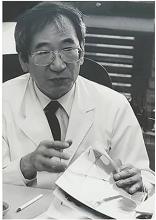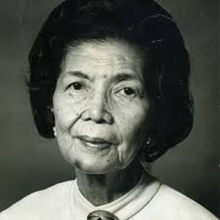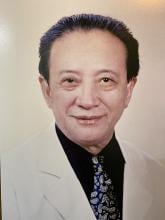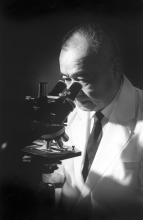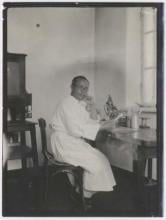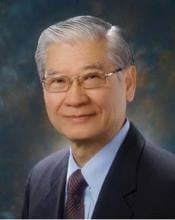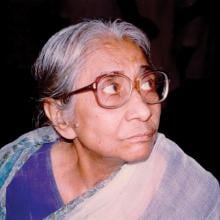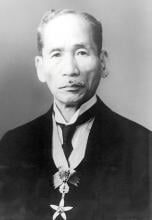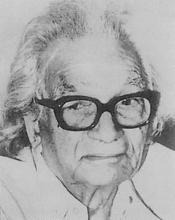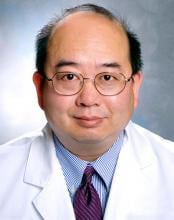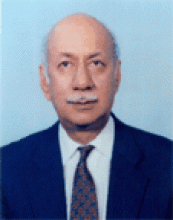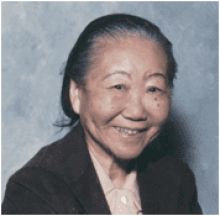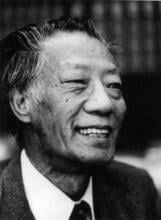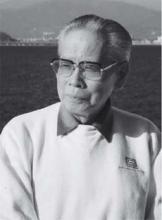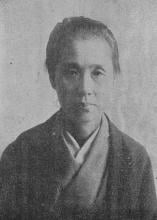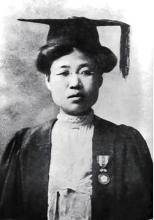Medicine
News
05 Apr 2022
Researchers have captured images of cells in mice using astronomy technology
04 Apr 2022
Distinguished Professor Hiroki Shirato of Hokkaido University is one of the nine recipients of the Japan Academy Prize in 2022, for his groundbreaking work on “Biomedical and Engineering Research about Real-time Tumor Tracking Radiotherapy/Particle Beam Therapy against Cancer.”
31 Mar 2022
Gene editing technology has been used to pinpoint new molecular targets for treating an aggressive form of leukemia in adults.
25 Mar 2022
Prof. Takashi Takebayashi and his colleague performed a retrospective analysis where they analysed the significance of varied assistance level when using robotic therapy among stroke survivors. They proved that the assistance level needs to be maximised for patients who had severe to moderate stroke whereas the assistance should be minimised for the moderate to mild stroke patients. They stressed on the need for future studies with more objective outcome tools and a larger sample using appropriate research methods.
23 Mar 2022
Researchers have discovered in mice an additional use of globins as an intravenous drug that can delay liver fibrosis progression. Last year, the application of recombinant human cytoglobin (CYGB) as a protein therapeutic agent against liver damage and cirrhosis was published in Hepatology (Hepatology 2021,73:2527-2545) by Professor Norifumi Kawada’s research group. Here, they studied the antifibrotic properties of the globin family members hemoglobin (HB), myoglobin (MB), and neuroglobin (NGB) in comparison with CYGB. All globins demonstrated greater antioxidant capacity than glutathione in cell-free systems. Interestingly, all globins, except HB, could enter the cells and inhibit the collagen synthesis leading to a suppression of fibrosis development both in vitro and in vivo. The study was published in the journal Redox Biology.
16 Mar 2022
Microgravity worms help solve astronaut muscle problems, CO2 recycling and drug development, Remote control of robot hand, Enabling the study of diverse Hepatitis B. Read all in the March's Editor's Choice and even more in the Asia Research News 2022 magazine.
11 Mar 2022
A soft hydrogel could help scientists find treatments for drug-resistant cancer stem cells.
09 Mar 2022
An analysis method for protein–protein interactions using proximity-dependent biotinylation for next-generation drugs
09 Mar 2022
Tests using a mouse model of Alport syndrome suggests that turning off a cell signalling protein may significantly prolong life by preventing kidney scarring.
04 Mar 2022
A recent study in The Lancet provides the most comprehensive understanding of this global health problem to-date.
04 Mar 2022
The Asian Development Bank partnered with global institutions to examine efforts to curb one of humanity’s most significant global health threats.
03 Mar 2022
Asia Research News surveyed institutions in Asia to learn about their latest contributions to antimicrobial resistance research.
02 Mar 2022
A team of researchers at Tohoku University have developed a simple lab-based system for growing human muscle cells that are capable of vigorously contracting.
01 Mar 2022
A novel biomaterial promotes bone tissue regrowth, showing promise for surgical procedures.
25 Feb 2022
Induction into the Hall of Master Academic Clinicians is the highest accolade for clinical faculty at the SingHealth Duke-NUS Academic Medical Centre. Exemplary clinical faculty members are selected by a special committee for their subject matter mastery, academic excellence and exceptional mentoring for Duke-NUS students.
25 Feb 2022
Scientists have developed a prototype sensor that could help doctors rapidly measure adenosine triphosphate (ATP) and lactate levels in blood samples from patients, aiding in the rapid assessment of the severity of some diseases.
24 Feb 2022
Giants in History: Ogino Ginko (3 March 1851 – 23 June 1913) was the first registered female doctor to practise modern medicine in Japan. After contracting gonorrhoea from her first husband and being embarrassed from having to seek medical attention from male doctors, Ginko resolved to become a doctor to help women in similar situations.
22 Feb 2022
A magnetic field could boost blood vessel growth to regenerate damaged tissue.
17 Feb 2022
Giants in History: Barry Paw (29 August 1962 – 28 December 2017) was a biologist and oncologist born in Myanmar who discovered several novel genes and their functions in red blood cells.
14 Feb 2022
Advancement in cell lines capable of producing Hepatitis B’s many genotypes can reveal much about the unique virological features and treatment responses eluding researchers of this virus that has been infecting humans as far back as the Bronze Age.
11 Feb 2022
Low volcanic temperature ushered in global cooling and thriving dinosaurs, Broccoli compound induces cell death in yeast, A single molecule makes big splash in quantum mechanics, Dengue virus makes mosquitos bite more often, and Asia Research News: How it all began, all in the February's Editor's Choice
07 Feb 2022
A large-scale study has found that simulation-based surgical training produced an increase of surgeons’ skills for more complex surgeries.
24 Jan 2022
Broccoli may contain advantages beyond nutrition. A molecule found in broccoli, cabbage and more digests down into DIM, a compound with brighter benefits than the name implies, such as inducing cell death in breast, prostate and colon cancer. Now, researchers are beginning to understand the mechanism underpinning this molecular behavior — information that could help elucidate future anti-cancer treatments.

21 Jan 2022
A booster dose of the Pfizer–BioNTech vaccine (BNT162b2) against SARS-CoV-2 after an initial two doses of either the CoronaVac inactivated virus vaccine or Pfizer–BioNTech mRNA vaccine is shown to provide protection against the Omicron variant, in a pair of papers published in Nature Medicine.
20 Jan 2022
A specific deep neural network model called Bidirectional Long-Short-Term Memory can use cough sounds to distinguish sick from healthy children, paving the way for preliminary screening.
19 Jan 2022
Researchers in Singapore and USA have developed a first-of-its-kind country ranking based on in-country experts’ ratings of the quality of palliative care services. The results reveal many countries have much room for improvement, including some high-income countries.
18 Jan 2022
Researchers are working to overcome challenges in order to bring wearable, electric, wound-healing devices to clinical practice.
17 Jan 2022
Patients with epilepsy must take medicine to manage seizures. Even then, only 65% are able to control their symptoms, rendering invasive surgery the only cure. Now, a research group has investigated a new stimulation paradigm that could cultivate greater resistance to epilepsy.
13 Jan 2022
The dengue virus alters mosquito behaviour in a way that makes it three times more efficient at transmitting infection.
Events

12 Nov 2006
Theme: Development and modern scientific technology of traditional medicine and natural health products.
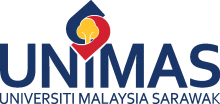
29 Jul 2006
We believe the key to stay competitive is Intelligence. What kind of intelligence is the right kind for the new competitions? How would Intelligence help us feel and be empowered, and empower our machines to be more efficient and helpful?

01 Jul 2006
The seminar aims at highlighting the strategic initiatives taken by IndianJournals.com in the field of e-publishing & promotion of Indian Publications
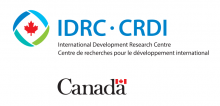
24 Apr 2006
Meeting of Pandemic experts, scientists and Asian national granting councils in Beijing, April 24-26, at the Beijing Friendship Hotel, Bai Shi Qiao Road, Haidian District, Beijing, China. Media briefing
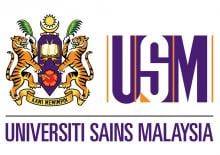
24 May 2006
The inaugural Penang International Postgraduate Convention will take place with the following conferences: 1st Health and Medical Science Conference; 3rd Life Sciences Postgraduate Conference; 1st Penang International Conference for Young Chemists
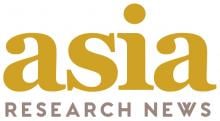
10 Mar 2006
Many insights will be gained by discovering more about the mechanisms of normal brain development, since abnormal development can lead to a range of cognitive disorders from mental retardation and learning disabilities to schizophrenia.

08 Mar 2006
The Asian Conference on Diarrhoeal Diseases and Nutrition (ASCODD) is held regularly every two years in different locations throughout Asia. The next event is the 11th ASCODD, to be held in Bangkok, Thailand, 8-10 March 2006.
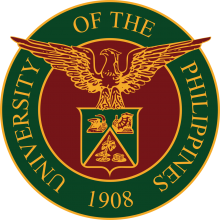
23 Jan 2006
"Emergencies and Disasters: Pearls for the 21st Century Primary Health Care Provider" is especially significant in this day of major calamities and disasters which unexpectedly come at any time and any place. Readiness to meet the challenges that such emergencies bring may be the deciding factor that will determine the possible outcome.

05 Jun 2006
Sample of abstract:“Healers use a variety of material medica including plants, animals and minerals. There were 363 species/types recorded for treating 91 health conditions.” The annual meeting of the Society of Economic Botanists will bring together the current research in this important and interesting field

06 Aug 2006
By 2006 the tangible impact on human health of the Human Genome Project and advances in genomic science and biotechnology will make attendance at the 11th Congress essential for health professionals and genetic scientists alike.

19 Jun 2006
bioLOGIC Europe is firmly established as Europe’s most prestigious series of strategic biomanufacturing conferences

05 Jun 2006
This conference is where the ideas, intelligence and relationships develop the business models of the future

20 Mar 2006
It is a knowledge experience, business meeting and marketplace from all parts of the world. A unique chance to meet, learn from and network with the Directors of the entire global industry in one place.

14 Jan 2006
This event is Free of charge and will be conducted in English

29 Nov 2005
A host of dignitaries, including the Prime Minister of Jordan, will join TWAS members to discuss the state of science in the developing world.

26 Aug 2006
Honey is popular as a folk medicine. In recent years, honey has been investigated for use in scientific medicine including control of wound infection, prevention of post surgical wound infections, treatment of burns and diabetic foot, to name a few.

15 Dec 2005
The 3rd International Symposium on Biotechnology will create and disseminate the fast growing knowledge for better learning in Enzyme technology, Biochemical Engineering, Fermentation technology, Tissue Culture, Genetics and Bioinformatics.

01 Dec 2005
XXV Annual Convention of National Neonatology Forum

17 Nov 2005
The 3rd Asia Pacific Conference on Reproductive and Sexual Health (3rd APCRSH) will be held in Kuala Lumpur from 17 to 21 November 2005.

19 Sep 2005
Training course on "Bioinformatics and Functional Genomics of Insect Vectors of Human Diseases"

28 Nov 2005
Hosted by The National Poison Center in Malaysia

06 Feb 2006
The 2006 Commonwealth Congress on Diarrhoea and Malnutrition will be held at ICDDR,B: Centre for Health and Population Research, Dhaka, Bangladesh, 6-8 February 2006.

11 Nov 2005
"Cancer: Are we winning the battle?" is the theme of this annual Asia Pacific congress is dedicated to presenting objective, up-to-date information on health and research in medicine today.

16 Nov 2005
This annual event will present the latest research in medical, dental and life sciences with a special theme on "The Health of the Body is in the Blood" where the focus will be on the various disorders associated with the blood.

29 Jun 2005
Health social security in Japan is at a cross-road: whether to gradually reduce the coverage to a basic minimum as in the United States, or to maintain the current level following the European example.

26 Jun 2005
WCN 2005 will address the cutting-edge of kidney research, as well as diagnostic and therapeutic aspects of renal disease.

15 Nov 2005
The focus of our conference theme will be " STI/HIV: Multidisciplinary Approaches - East Meets West".
Researchers
Sorry, no researchers coming up for this topic.
- « first
- ‹ previous
- 1
- 2
- 3
- 4
Giants in history
Michiaki Takahashi (17 February 1928 – 16 December 2013) was a Japanese virologist who developed the first chickenpox vaccine.
Irene Ayako Uchida’s (8 April 1917 – 30 July 2013) strides to understand genetic diseases such as Down syndrome paved the way for early screening of chromosomal abnormalities in foetuses.
Baron Kitasato Shibasaburo (29 January 1856 – 13 June 1931) was a Japanese physician and bacteriologist whose work led to a new understanding of preventing and treating tetanus, diphtheria and anthrax.
Maggie Lim (5 January 1913 – November 1995) was a Singaporean physician who promoted family planning and expanded the access to clinics to improve the quality of life for mothers and children in Singapore’s early days.
By isolating soil microorganisms and studying the compounds they produce, Satoshi Omura (born 1935) discovered almost 500 organic compounds with unique properties that were produced by these microorganisms, including many new antibiotics.
The founder of the Adyar Cancer Institute in India, Muthulakshmi Reddy (30 July 1886 – 22 July 1968), fought to uplift women and girls from impoverished situations.
Chinese-American virologist and molecular biologist Flossie Wong-Staal (27 August 1946 – 8 July 2020) was the first scientist to clone HIV and determine the function of its genes.
Maharani Chakravorty (1937 – 2015) was one of India’s earliest molecular biologists whose research paved the way for advances in the treatment of bacterial and viral infections.
Archana Sharma (16 February 1932 - 14 January 2008) conducted research into plant and human genetics that expanded the understanding of both botany and human health. In relation to botany, she uncovered the means by which asexually-reproducing plants evolve into new species.
The first Thai woman to receive a degree in medicine, Margaret Lin Xavier (29 May 1898 – 6 December 1932), is best remembered for her compassion towards her less privileged patients.
In 1915, pathologist Katsusaburo Yamagiwa and his research assistant Koichi Ichikawa became the first to prove that chronic exposure to chemicals can cause cancer.
In 1915, Koichi Ichikawa along with pathologist Katsusaburo Yamagiwa became the first to prove that chronic exposure to chemicals can cause cancer.
Husband and wife team, Kimishige (3 December 1925 – 6 July 2018) and Teruko Ishizaka (28 September 1926 – 4 June 2019) discovered the antibody class Immunoglobulin E (IgE) that triggers allergic reactions. They also discovered that IgE antibodies attach to white blood cells, known as mast cells, releasing histamine, which causes allergic reactions.
Husband and wife team, Kimishige (3 December 1925 – 6 July 2018) and Teruko Ishizaka (28 September 1926 – 4 June 2019) discovered the antibody class Immunoglobulin E (IgE) that triggers allergic reactions. They also discovered that IgE antibodies attach to white blood cells, known as mast cells, releasing histamine, which causes allergic reactions.
Japanese chemist Takamine Jokichi (3 November 1854 – 22 July 1922) founded the Tokyo Artificial Fertilizer Company, where he isolated a starch-digesting enzyme (named takadiastase) from the fungus Aspergillus oryzae.
Ground-breaking cancer researcher Kamal Jayasing Ranadive (8 November 1917 – 11 April 2001) advanced the understanding of the causes of leukaemia, breast cancer and oesophageal cancer through the use of animal models. She was also among the first to recognise how susceptibility to cancer is linked to tumour-causing interactions between hormones and viruses.
The research of Filipino pharmaceutical chemist Luz Oliveros-Belardo (3 November 1906 – 12 December 1999) focussed on essential oils and other chemicals derived from native Philippine plants.
Thai physician and conservationist Boonsong Lekagul (1907 – 1992) made major contributions to the preservation of his country’s wildlife.
Indian scientist and physician Upendranath Brahmachari (19 December 1873–6 February 1946) is best known for creating a drug called Urea Stibamine, used to safely and reliably treat visceral leishmaniasis (or Kala-azar), a severe infection caused by the Leishmania parasite.
Filipino chemist and pharmacist Manuel A. Zamora (29 March 1870 – 9 July 1929) is best remembered for his discovery of the tiki-tiki formula to combat beriberi, a disease caused by Vitamin B1 deficiency.
Korean parasitologist Seung-Yull Cho (16 November 1943 – 27 January 2019) is remembered largely for his pioneering works to control infections caused by helminthic parasites and his contribution to journal publishing.
Fe Villanueva del Mundo (27 November 1911 – 6 August 2011) was a Filipina paediatrician who founded the Philippines’ first paediatric hospital.
After witnessing death and suffering as a youth in his home village during World War II, Nguyễn Tài Thu (6 April 1931 – 14 February 2021) set his sights on alleviating pain by becoming a doctor. After studying Traditional Chinese Medicine in China in the 1950s, Thu returned to Vietnam to serve in military hospitals. Eventually, he became the country’s foremost practitioner of acupuncture, a technique he first learned by inserting needles into himself.
Minoru Shirota (April 23, 1899 – March 10, 1982) was a Japanese microbiologist who invented the popular fermented drink Yakult.
Wu Lien-teh (10 March 1879 – 21 January 1960) was a Malaysian-born doctor who invented a mask that effectively suppressed disease transmission. Winning the prestigious Queen’s Scholarship enabled Wu to become the first Chinese student to study medicine at the University of Cambridge.
David T. Wong (born 1936) is a Hong Kong-born American neuroscientist who is best known for discovering the antidepressant drug fluoxetine, better known as Prozac.
Indian organic chemist Asima Chatterjee (1917 to 2006) studied the medicinal properties of plant products, especially compounds known as vinca alkaloids.
Chika Kuroda (24 March 1884 – 8 November 1968) was a Japanese chemist whose research focussed on the structures of natural pigments.
Umetaro Suzuki (7 April 1874 – 20 September 1943) was a Japanese scientist best remembered for his research on beriberi, a disease caused by vitamin B1 deficiency, characterized by limb stiffness, paralysis and pain.
Salimuzzaman Siddiqui (19 October 1897 – 14 April 1994) was an artist and chemist from Pakistan whose research focused on natural products from plants.
Barry Paw (29 August 1962 – 28 December 2017) was a biologist and oncologist who discovered several novel genes and their functions in red blood cells.
Syed Qasim Mehdi (13 February 1941 – 28 September 2016) was a Pakistani molecular biologist who was a founding member of the Human Genome Diversity Project (HGDP), which assessed human diversity by studying human migration, mutation rates, relationships between different populations, genes involved in height and selective pressure.
Tsai-Fan Yu (1911 – 2 March 2007) was a Chinese-American physician and researcher who was the first female full professor at Mount Sinai School of Medicine. She discovered that gout, a condition characterized by the painful inflammation of joints, was caused by elevated levels of uric acid in the bloodstream.
Min Chueh Chang (10 October 1908 – 5 June 1991) was a Chinese-American biologist who studied fertilization in mammalian reproduction.
A Japanese surgeon, Tetsuzo Akutsu (20 August 1922 – 9 August 2007) built the first artificial heart capable of keeping an animal alive.
Ogino Ginko (3 March 1851 – 23 June 1913) was the first registered female doctor to practise modern medicine in Japan.
Esther Park (1877-1910), born Kim Jeom-dong, was the first female Korean physician to practise modern medicine in Korea and trained the first generation of Korean female doctors.


